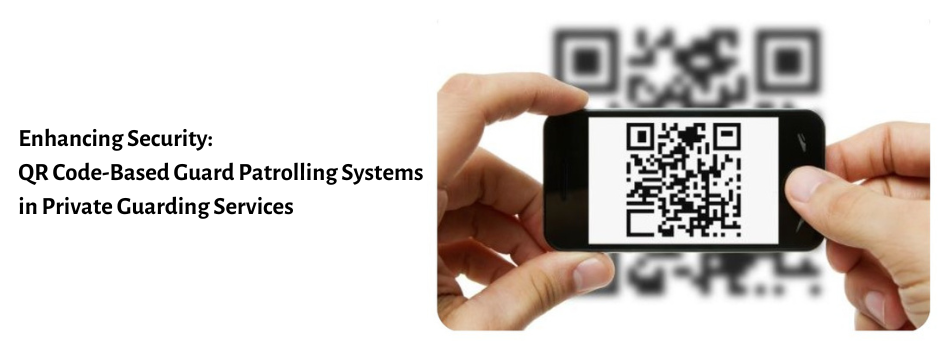
Technological advancements have been shaping the private security industry. With powerful integrations of cutting-edge technology, the sector is being revolutionized. For instance, QR code-based guard patrolling system has been a game-changer that has elevated efficiency, accountability, and effectiveness in private security and guarding services.
The Evolution of Private Security
Private security and guarding services have evolved from traditional watchmen to a sophisticated amalgamation of human expertise and technological prowess. As the demand for heightened security measures continues to grow, embracing technology has become imperative. Among the innovative solutions, QR code-based guard patrolling systems stand out as an exemplary illustration of how technology is reshaping the industry.
Understanding QR Code-Based Guard Patrolling Systems
QR code-based guard patrolling systems represent a paradigm shift in how security personnel monitor and patrol premises. This technology involves strategically placing QR codes at predefined checkpoints throughout a property. Security guards use smartphones or dedicated devices to scan these QR codes during their patrols, creating a digital record of their movements and activities.
Benefits of QR Code-Based Patrolling Systems
- Real-Time Monitoring and Verification: QR code-based systems enable real-time monitoring of guard patrols. Each scan is time-stamped and geo-tagged, providing an indisputable record of the guard’s location and activities. This enhances accountability and ensures that patrols are conducted as scheduled.
- Efficient Data Collection: Traditional paper-based patrolling logs are prone to errors and can be time-consuming to manage. QR code-based systems streamline data collection, eliminating manual record-keeping and facilitating accurate reporting.
- Immediate Incident Response: In case of an emergency or security breach, the system can send instant alerts to the central monitoring station, enabling swift and targeted response by security personnel. This can significantly reduce response times and mitigate potential risks.
- Customizable Checkpoints: QR code-based systems can be tailored to specific security requirements. Checkpoints can be strategically placed to cover critical areas, ensuring comprehensive coverage of the property.
- Data Analytics and Insights: The data collected through QR code scans can be analyzed to identify patterns, optimize patrol routes, and detect anomalies. This data-driven approach enhances the overall effectiveness of security operations.
- Integration with Other Technologies: QR code-based guard patrolling systems can be seamlessly integrated with other technological solutions, such as CCTV cameras, access control systems, and alarm systems. This integration creates a holistic security ecosystem that enables comprehensive monitoring and management.
- Enhancing Training and Compliance: QR code-based systems also play a crucial role in training and compliance. New security personnel can undergo training exercises that involve scanning QR codes to simulate real-world scenarios. This practical training enhances their familiarity with the system and its protocols.
The integration of technology, particularly QR code-based guard patrolling systems, has ushered in a new era of precision and accountability in private security and guarding services. As security needs become more complex, these systems provide an innovative solution that combines real-time monitoring, efficient data collection, and immediate incident response. By embracing QR code-based technology, the private security industry demonstrates its commitment to staying ahead of evolving security challenges and ensuring the safety and well-being of individuals, properties, and assets. At Stalwart, we have designed a seamless integration model that can be calibrated based on your existing systems. Contact us to know more about how you could integrate it into your security system for an effective patrol monitoring system.


